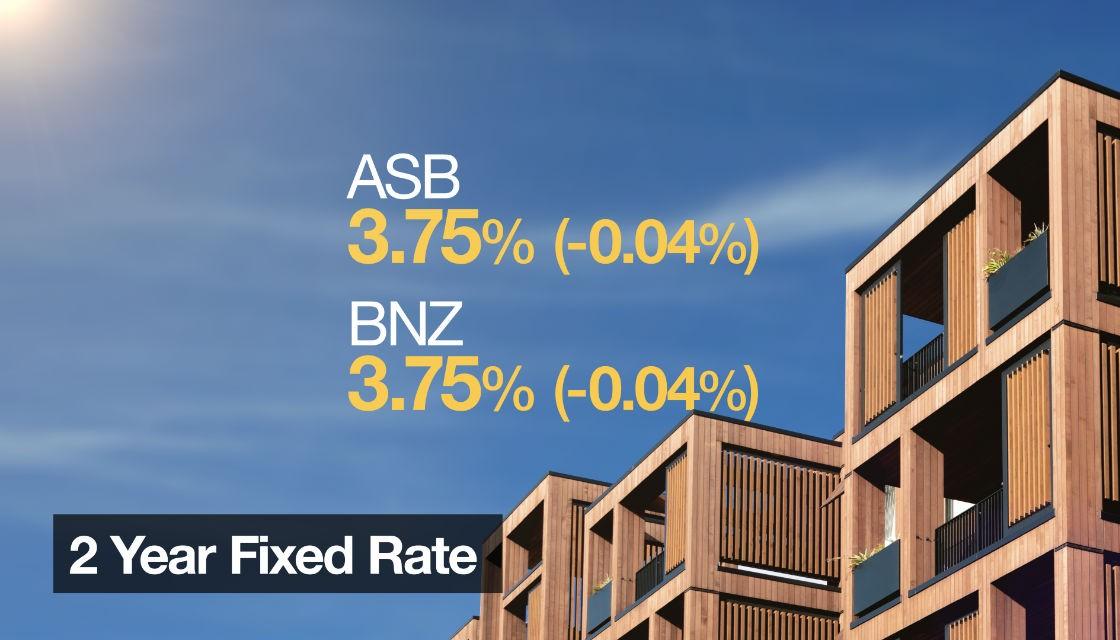The Reserve Bank has cut the official cash rate (OCR) to 1 percent on Wednesday - and banks have followed suit.
The cut was by a bigger-than-expected 50 basis points (bp), as it looks to prop-up a cooling economy.
- Official cash rate may be cut 'two or three times more' - Cameron Bagrie
- Expert warns against perils of consumerism and rising house-hold debt
- New Statistics NZ tool lets you know just how rich or poor you really are
While economists say the lower rates mean now could be the time to buy, it also means less money for savers.
Is now the time to put in an offer or put your money into something more profitable? Take a look at what banks are offering below.
Kiwibank
Kiwibank says it is passing on the full 0.5 percent OCR rate cut to its customers with variable home loan rates - which will see it having the lowest variable rate in the market.
Kiwibank Variable is down to 5.15 percent pa, Kiwibank Revolving falls to 5.2 percent pa, and Kiwibank Offset drops to 5.15 percent pa.
"Kiwibank is committed to be the better banking alternative, a bank that provides real value for money. We are making these changes so that our home loan customers receive the full benefit of market changes," says chief marketing officer Mark Wilkshire.
On the deposit side, Notice Saver - 32 day rates dive to 1.7 percent pa, and Notice Saver - 90 days drops to 2.7 percent pa.

ANZ
ANZ has lowered its interest rates on its Floating and Flexible home loans by 0.5 percent, from 5.69 percent to 5.19 percent.
"As New Zealand's largest home lender, we're committed to helping Kiwis into their own homes," says Ben Kelleher, acting ANZ managing director of retail and business banking.
"The current extreme low-interest rate environment not only represents an opportunity for new home buyers to enter the market, but for existing home loan customers to pay off as much of their debt as possible.
"We are, however, concerned about the impact lower interest rates will have on savers, so we are cautiously reviewing deposit rates. Given how low-interest rates now are, a drop in deposit rates is likely to have a bigger impact on elderly savers than a drop in lending rates on homeowners."
Westpac
Westpac has reduced its Choices Floating rate to 5.34 percent pa and the revolving Choices Everyday rate to 5.44 percent pa.
The base interest on its Simple Saver, Online Saver, Cash Management and Ready Access accounts have been reduced by 5bps to 0.05.

ASB
ASB has reduced its variable home loan rate by 0.5 percent from 5.7 percent pa to 5.2 percent pa. It has also lowered its two-year fixed home loan rate by 4bps to 3.75 percent pa.
At the same time, it's limiting the interest rate reduction by 5bps on its most popular retail savings account, Savings on Call.
"This is about meeting the expectations of our customers and making a deliberate choice to put them first," says Craig Sims, ASB executive general manager.
"We believe our new lower rates provide a fair and considered outcome for borrowers while also balancing the needs of our savings customers.
ASB is encouraging homeowners to make the most of the current low interest-rate environment.
"Now is an ideal opportunity for customers to review their home loan to see if they can increase their financial well-being," Sims says.
"For example, customers should consider whether to adjust the ratio of fixed versus floating if they have split their mortgage or whether changing from monthly to fortnightly payments would save them money."
BNZ
Bank of New Zealand (BNZ) is cutting both its floating and fixed home loan rates.
Floating rates fall 50 bps to 5.30 percent, while two-year fixed rates fall -4 bps to 3.75 percent.
"We're now able to offer more people more options," says BNZ chief customer officer, Paul Carter.
"Many New Zealanders love the certainty a fixed-term home loan gives them, locking in a set repayment for a number of years, while others want to take a more flexible and hands on approach to managing their mortgages with a floating rate offers."
Should you buy?
Century 21 New Zealand owner Derryn Mayne says it's time for renters to get on a mortgage calculator.
Based on the typical two-year home loan bank special of 3.79 percent, buying a house at the national median price of $585,000, after paying a 20 percent deposit, would cost in interest repayments about the same as paying the national median rent of $500 a week, she says.
"Potential first-home buyers need to head to a mortgage calculator. Once we see how much retail banks are going to pass on, those currently renting might be pleasantly surprised," she says.
"With this OCR cut and the possibility of more to follow, the case to buy will only become stronger and stronger."
Newshub.
